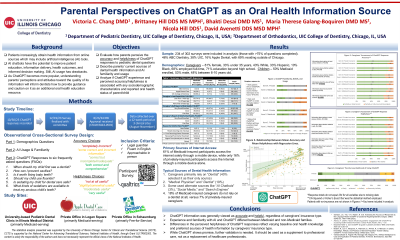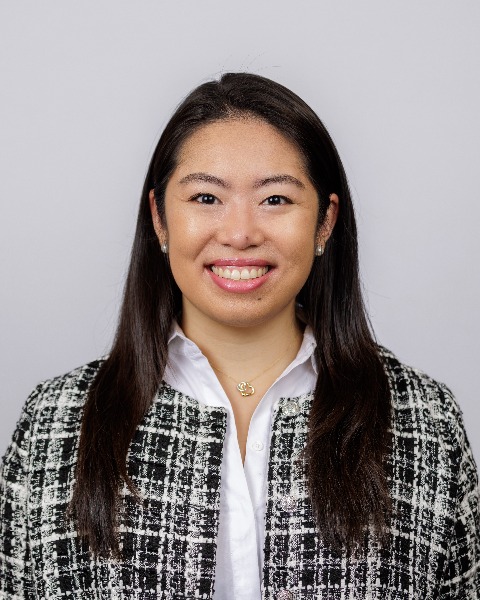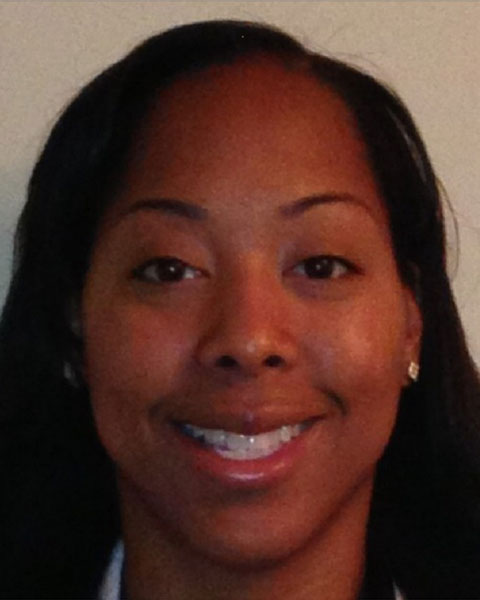Other
12 - Parental Perspectives on ChatGPT as an Oral Health Information Resource


Victoria C. Chang, DMD
Chief Resident, PGY-2
University of Illinois at Chicago, Chicago IL
Chicago, Illinois, United States.jpg)
David M. Avenetti, DDS, MSD, MPH (he/him/his)
Pediatric Dentistry Department Head, Clinical Associate Professor
University of Illinois Chicago
University of Illinois Chicago, Dept. of Pediatric Dentistry
Chicago, Illinois, United States
Brittaney J. Hill, DDS, MS, MPH
Clinical Associate Professor and Residency Program Director
University of Illinois Chicago, Chicago IL
University of Illinois at Chicago
Chicago, Illinois, United States
Presenting Author(s)
Research Mentor(s)
Program Director(s)
Purpose: Patients increasingly obtain oral health (OH) information online and from artificial intelligence (AI) tools. As ChatGPT gains popularity, its potential for OH education remains unclear. This cross-sectional study evaluates parents’ ChatGPT familiarity/usage and the perceived accuracy/helpfulness of responses to pediatric-specific clinical questions.
Methods: Parents completed Qualtrics surveys between August–November 2024 in three clinical settings: a private fee-for-service office, a private primarily Medicaid-serving office, and a university-based Medicaid-serving clinic. Surveys collected sociodemographic and self-reported OH information. Parents also described their experience/familiarity with ChatGPT and rated the accuracy/helpfulness of six ChatGPT responses covering various pediatric dentistry topics (e.g., prevention, treatment, safety). Bivariate and multivariate logistic regression were conducted to account for covariates.
Results: 234 of 302 surveys were analyzed (surveys with >75% of questions completed). Caregivers were 81% female, 33% under 35 years, 43% White, 33% Hispanic, and 10% Black. Most were employed full-time (68%) and had education beyond high school (71%). Children were 50% Medicaid-enrolled, 53% male, and primarily 6-to-10 years old (48%). Medicaid was associated with poorer caregiver and child self-reported OH and the child’s likelihood of having a restorative visit (P < .001). Parents of privately insured children had greater ChatGPT experience (P=0.037) but felt less likely to use it for obtaining OH information (P=.018). Over 80% of participants rated ChatGPT responses as “very” or “somewhat” accurate/helpful.
Conclusions: Parents have varying experience with ChatGPT, yet parents rated its information as accurate/helpful, regardless of SES. Further research is needed to explore the implications of these findings for pediatric OH education.
Identify Supporting Agency and Grant Number: Not applicable.

.jpg)